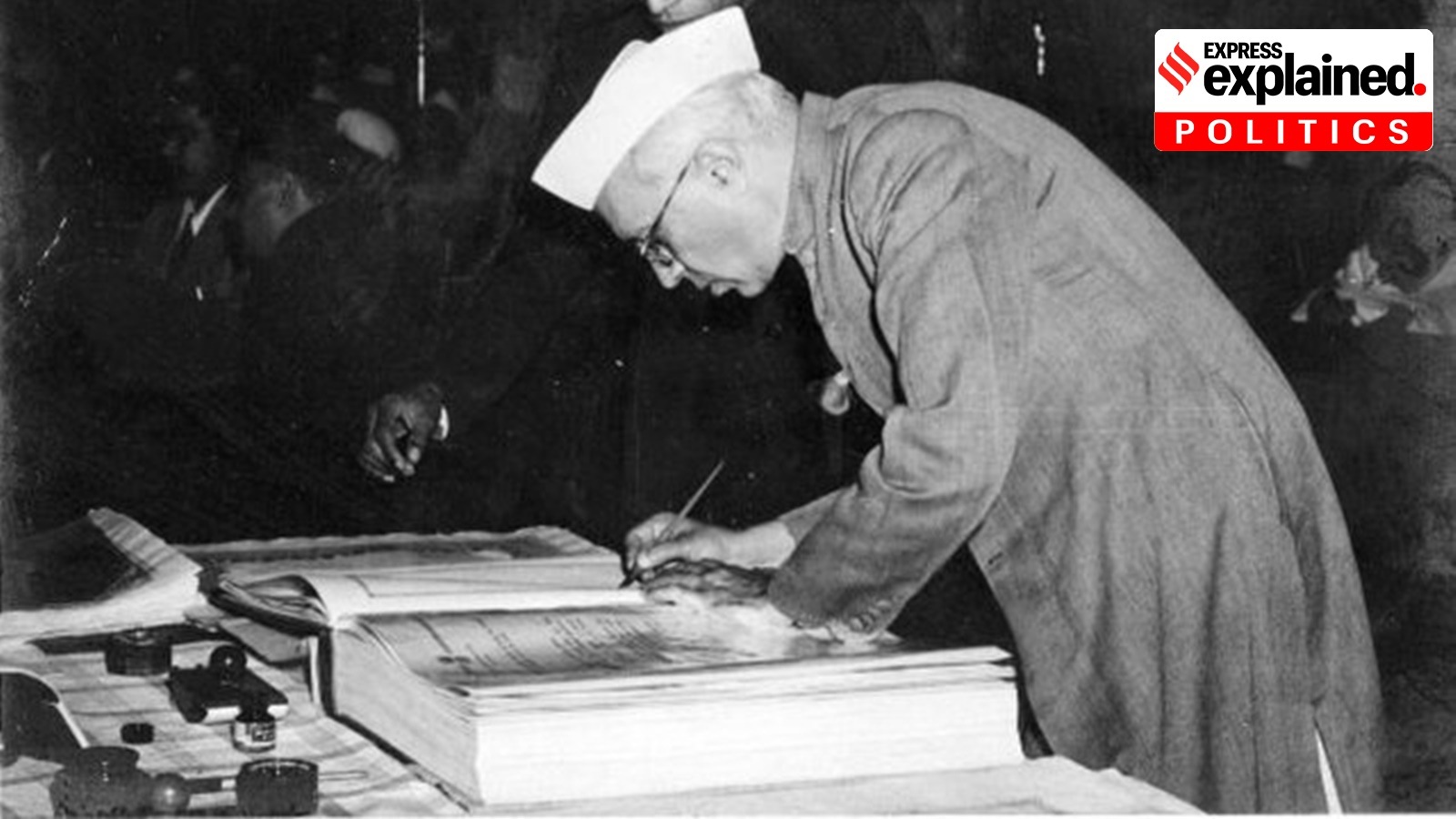Leader of Opposition in Rajya Sabha Mallikarjun Kharge on Monday (December 16) accused Prime Minister Narendra Modi of “twisting facts” about a letter Jawaharlal Nehru wrote to chief ministers, in which he mentioned reservations for the weaker sections of society.
Speaking in the Upper House, Kharge said, “Nehru ji had written a letter to the Chief Ministers, which Modi ji mentioned in his speech to defame Nehru ji by distorting the facts. For this, he should apologise to the country.”

PM Modi in Lok Sabha on Saturday had said, “From Nehru to Rajiv Gandhi, the Congress’s PMs strongly opposed reservation. History attests to this. Nehru wrote long letters to the Chief Ministers opposing reservation.”
What is this letter Modi mentioned, and what did Nehru write about reservations?
Nehru’s letters to Chief Ministers
As Prime Minister, Nehru was in the habit of writing fortnightly letters to Chief Ministers, generally on the first and 15th of each month. This was a practice he began soon after Independence, and continued till a few months before his death. He explained the reason for doing so thus in 1947, “It is in times of exceptional stress like the present that it is more than ordinarily incumbent on us to keep in close touch with each other, so that we can put forth concerted efforts to overcome the grave dangers facing us.” Nehru wrote about 400 such letters, and they shed a light on his views on a wide variety of issues.
When the Jawaharlal Nehru Memorial Fund collected and published the letters in 1985, a foreword was written by Rajiv Gandhi. He wrote, “Jawaharlal Nehru, as the first Prime Minister, was convinced that the task of building institutions and conventions, so vital in a democracy, demanded that he share with his colleagues his reasons for whatever decisions he took and courses of action he pursued. Change through consent and greater social justice were the theme songs of Panditji’s prime ministership…These fortnightly letters have long been regarded as a basic text in nation-building and in open statecraft.”
What did Nehru’s letter about reservations say?
In a letter dated June 27, 1961, Nehru wrote about the need for efficiency and of “getting out of our traditional ruts.” This, he wrote, “necessitates our getting out of the old habit of reservations and particular privileges being given to this caste or that group. The recent meeting we held here, at which the Chief Ministers were present, to consider national integration, laid down that help should be given on economic considerations and not on caste. It is true that we are tied up with certain rules and conventions about helping the scheduled castes and tribes. They deserve help but, even so, I dislike any Kind of reservation, more particularly in Services.”
Story continues below this ad
He continued, “I react strongly against anything which leads to
inefficiency and second-rate standards. I want my country to be a first class country in everything. The moment we encourage the second-rate, we are lost. The only real way to help a backward group is to give opportunities of good education, this includes technical education which is becoming more and more important. Everything else is provision of some kind of crutches which do not add to the strength or health of the body.”
About efforts made to ensure “good education”, he wrote, “We have made recently two decisions which are very important: one is, universal free elementary education, that is the base; and the second is scholarships on a very wide scale at every grade of education to the bright boys and girls, and this applies not merely to literary education, but, much more so, to technical, scientific and medical training. I lay stress on the bright and able boys and girls because it is only they who will raise our standards.”
He added, “I have no doubt that there is a vast reservoir of potential talent in this country if only we can give it opportunity. But if we go in for reservations on communal and caste basis, we swamp the bright and able people and remain second-rate or third-rate. I am grieved to learn of how far this business of reservation has gone based on communal considerations. It has amazed me to learn that even promotions are based sometimes on communal or caste considerations. This way lies not only folly, but disaster. Let us help the backward groups by all means, but never at the cost of efficiency.”
Story continues below this ad
What policy did Nehru’s government implement on reservation?
The views in this letter notwithstanding, Nehru’s government did not implement policies to take away or dilute the provision of reservations. In fact, Nehru had said, “Frankly, I would like to put an end to reservations but in the present state of affairs in India it would not be a desirable thing to do with regards to the Scheduled Castes.”
Also, the Constituent Assembly had debated reservations vigorously, in which Nehru did not oppose them.
While the Constitution made provisions for reservation for seats for Scheduled Castes and Tribes in Legislature, in 1950, under Nehru, they were provided a quota in government jobs of 12.5% and 5% respectively.








































